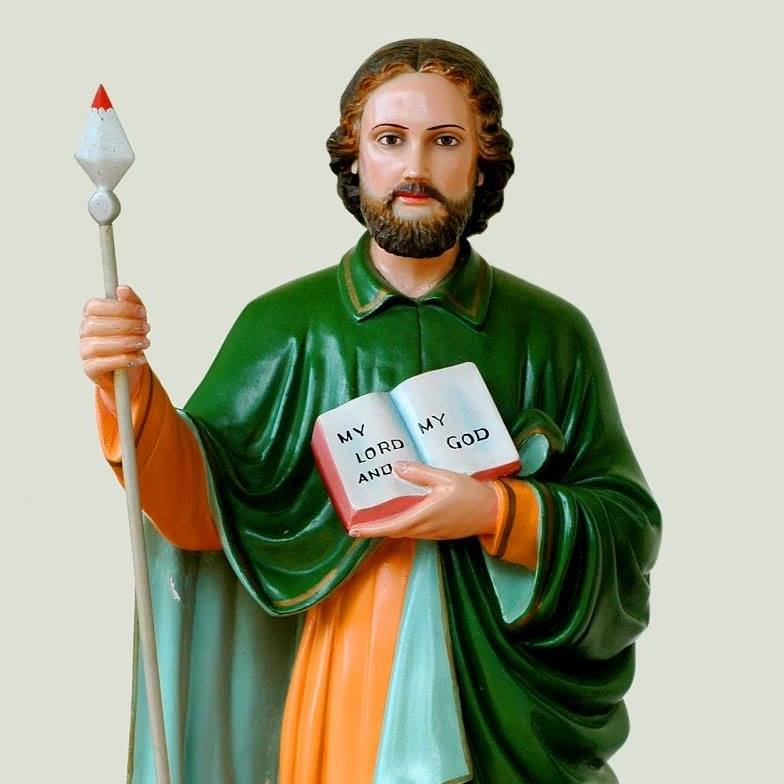
The ecclesiastical unit of Chanda was established by Pope John XXIII in 1962. It was initially known as the Ordinariate of Chanda. It was raised to the status of an Exarchate in 1968. Again, in 1977, it was made an eparchy/diocese. Bishop Januarius Palathuruthy CMI was the first bishop of Chanda. He retired in 1990 and was called for eternal rest in 1995. His motto was "Sambhajemahi Divyani" - Share everything dynamically divine. T h e m o t t o o f t h e second shepherd of the diocese, Bishop Vijay Anand Nedumpuram CMI, was "Visva Kutumb" - Universal family. During his Episcopal ministry, the diocese was bifurcated in 1999 and the diocese of Adilabad was erected. Bishop Vijay Anand retired in 2014. Bishop Ephrem Nariculam assumed the office the same year. His motto is “Tava Rajyam Ayathu” – Thy Kingdom Come.
Ever since the creation of the diocese, the Chanda missionaries focussed their attention on evangelisation and its primacy was never compromised until now. So much so the diocese did not venture to start a school until 2002 after Bramahpuri school in 1975 (it means, it took 40 years to start another diocesan school). The days, weeks, months and years passed, the growth of Chanda mission became an incredible story of mission endeavour in the history of Syro-Malabar Church and the Church in India. The silver jubilee of the diocese was celebrated in a grand way in 1987. Several renewal programs benefitting to adults, youth and children were conducted before the final celebration.
There was jubilation again all over Chanda in 2012 on the occasion of the golden jubilee of the diocese. Great family spirit was visible all over the diocese. We had a seven year- long preparation for this celebration. Many faith renewal programs were conducted during these years of preparation. Many participants in these programs/seminars had to a great extent the feelings of the early Christian communities. Well- prepared and participative liturgies, researches, stimulating and challenging inputs, discussions, agreements and disagreements were the marks of the seminars. The golden jubilee celebration was truly a Christ-centred event.

The pastoral plan of Bp. Januarius, although very simple, was very much visible in its effective implementation. The bishop did not focus in the cities and towns. From peripheries to the centre was his novel idea. So he exhorted the missionaries to establish Christian communities in remote and small places/villages. In order to have contact with more and more people, the missionaries were guided to start children's homes at every station. The missionaries were able to reach to the parents of the boarders through the children/boarders themselves.
Although Bp. Januarius knew very well the value of education he was not directly instrumental in starting any educational institution in the diocese. He left that work to the religious Congregations. He encouraged them to start schools wherever possible. On the other hand he exhorted priests to focus on evangelisation which they did with vigour and valour. Great emphasis was given to the Ad Gentes mission of the Church. Catechists played a big role in this mission. The life style of Bp. Januarius was very simple. He was against bringing in huge sums of money from different donor agencies abroad to implement mega projects, in lieu he preferred micro projects.
Bp. Vijay Anand encouraged the missionaries to offer pre-primary education to the children at every station. Some of those pre-primary schools have now grown into primary, middle or high schools. The educational institutions help the missionaries a lot to have dialogue with the people. Bp. Vijay Anand was a man of dialogue and discussion. He made sure that all the decisions were made through a dialogue process. He made policies for children's homes, health care units, educational institutions etc. Also pay-scale policy was made and implemented for all the diocesan employees. Nobody was paid salary or honorarium less than the prescribed minimum scales. He laid great emphasis on zero budget natural-farming and simplicity in life-style.
Bp. Ephrem Nariculam, the third and the first to become bishop from the diocesan clergy codified most of the diocesan policies into book form - Statutes of the Eparchy of Chanda - in the year 2018. He also prepared Education Policy, established the Board of Education and the Policy for the Safety of Minors and Vulnerable Adults. The diocese has launched new programmes for Children and Youth (Talent Club and Post-matric hostels), training in farming and animal husbandry for farmers and missionaries (SCENT - Santwadi Centre for Education, Natural-farming and Training, Mul) from 2017. Home Mission, Family Counselling, Spiritual empowerment programmes as well as renovation of churches, presbyteries, convents, boardings, village chapels etc. are also taken up on a priority basis since the beginning of his episcopal ministry. These are given great attention notwithstanding paramount importance on evangelisation as primary task of every missionary in the diocese.